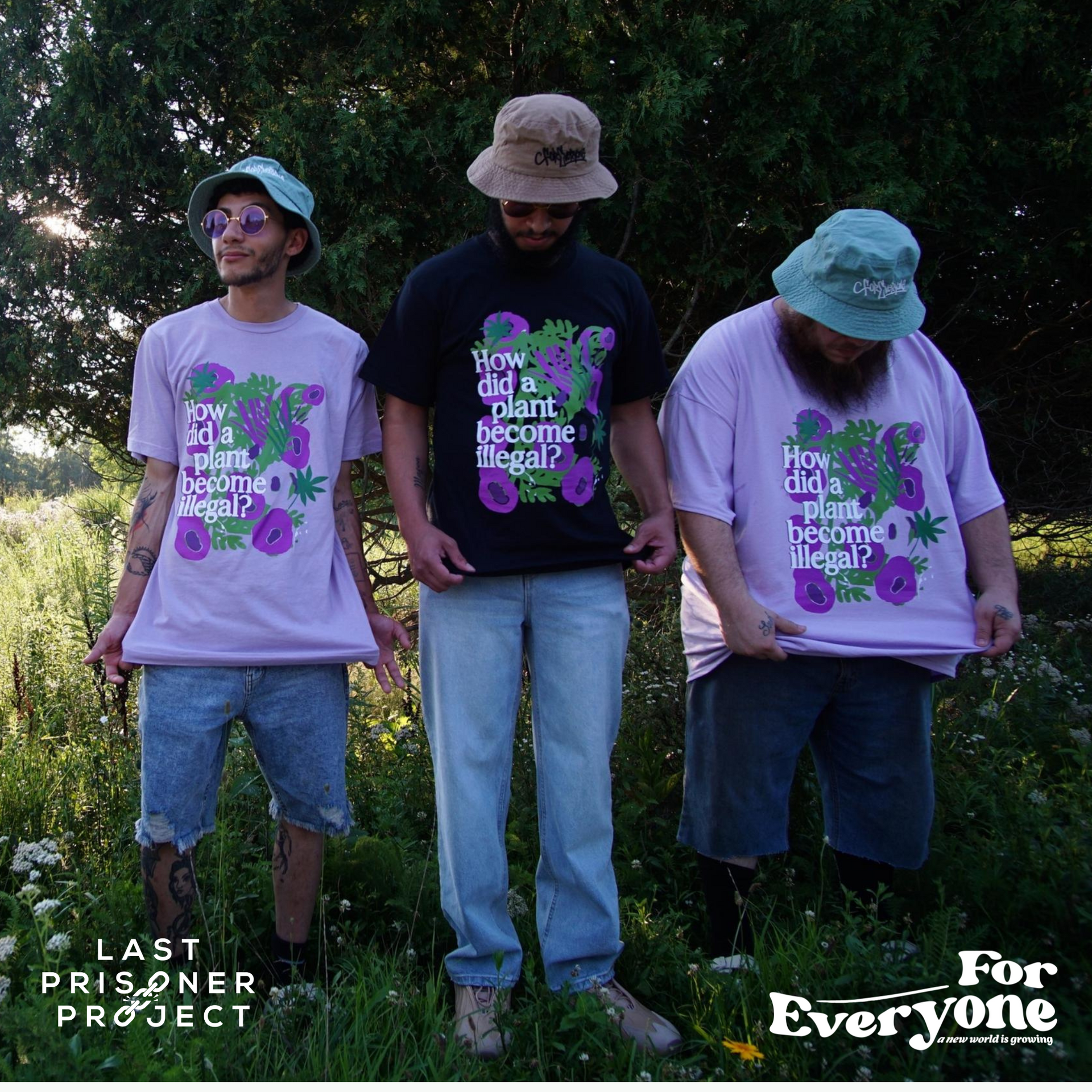For Everyone Collective And Last Prisoner Project Release Their First-Ever Merchandise Collaboration
Today, For Everyone Collective and Last Prisoner Project released their first-ever merchandise collaboration titled “How Did a Plant Become Illegal?”. This joint-project brings together two mission-driven organizations seeking to empower those currently and formerly incarcerated. This collaboration will feature the history of cannabis and its criminalization. From when it began growing on the planet over 25 million years ago to today’s cannabis industry generating over $24 billion per year. Unfortunately, those most impacted by America’s criminalization of cannabis have yet to benefit from new laws that legalize the industry.
For Everyone Collective is a worker-owned creative shop, driving their mission to fuel sustainable earnings, free health insurance and community building between people who’ve been impacted by incarceration.
“We’re excited to collab with Last Prisoner Project in this timely project. Our organizations’ mission to support those currently and formerly incarcerated was sparked by the known injustices in the American legal system, said a For Everyone spokesperson.
Black, Brown, and poor communities have suffered from these predatory laws, causing long-term generational trauma and limiting opportunities to grow wealth.”
The Last Prisoner Project is centered on reforming cannabis policies that has fueled mass incarceration of Black and brown people. Since 2019, LPP has supported current and formerly incarcerated for cannabis offenses through several programs focused on clemency, reentry, and advocacy campaigns.
"We are so thrilled to partner with For Everyone, a company that centers directly impacted individuals and their families, to design apparel that informs and educates the public on how prohibition was designed to disenfranchise communities of color from the start, stated
Sarah Gersten, Executive Director of Last Prisoner Project. We are especially proud that all proceeds will be going to our constituents currently incarcerated for cannabis.”
Ambassadors of this collaboration include, Cheech & Chong, MTV reality star, Brandon Gomes, Musicians B Real and Melissa Etheridge, Doug Benson and Alicia, co-hosts of "Getting Doug with High" Podcast and Tiktok influencer, Jessica Golich.
Starting August 4, customers will be able to view the “How Did a Plant Become Illegal?” collection. Proceeds after cost of production and shipping will support people that are currently or formerly incarcerated for cannabis through Last Prisoner Project’s Constituent Support Fund.







